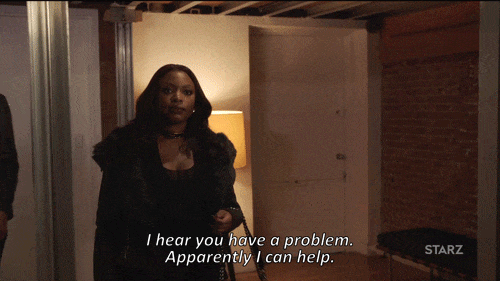When your boss is a bully, most of the advice you’ll hear is to get a new job. But what if you can’t?
A bullying boss is different than a bullying coworker. The power your boss wields over you leaves you with fewer options for dealing with the bullying. You can’t turn to your boss for your help when your boss is the problem.
Bullying by your boss is hard to miss when it’s in your face. They will yell, sigh dramatically, call you names, roll their eyes, pound their desk, or throw things. They’re the type of person who will say things to intimidate, degrade, or humiliate you. You’ll be their scapegoat, as they blame you for their own mistakes or for errors made by other people. They might even regularly threaten to fire or demote you, or lob insults like, “You should be grateful you even have this job.”
A sneaky bully of a boss will set you up for failure. Withholding access to resources and information is their forte. They’ll “forget” to include you on emails or in meetings you need to be a part of to do your job well. Their feedback and decisions will usually come at the last minute so you’re constantly scrambling to get your job done. They’ll badmouth you behind your back to your coworkers, other managers, or vendors. They’ll provide few opportunities for you to prove yourself, and give overly negative performance reviews that aren’t backed up by examples.
If any of that sounds familiar, your boss is probably a bully. Here are some steps you can take to deal with your boss’ bullying behavior.
Speak up against bullying

There’s a chance your boss is clueless and not malicious. They may be stressed out or depressed, and are taking it out on you. It’s possible they are unaware that their behavior has crossed the line into bullying.
It can be tricky to confront your boss about their behavior, and it won’t necessarily solve the problem. Start by assessing the situation objectively. Is there any chance you’re being oversensitive? When in doubt, check with an impartial person you trust. Is your boss the kind of person who might be receptive to tactful feedback? If not, don’t provoke them and head to HR instead. Have you avoided talking to your boss about their bullying because you don’t like confrontation? Letting their offensive behavior slide isn’t going to make things better.
The next time your boss bullies you, first take the time you need to calm down and plan what you’ll say. Then, ask your boss if you can talk to them in private. Tell them what bothered you about their behavior and how it made you feel. Use “I” statements so it doesn’t sound like a personal attack. Here is an example of how you could phrase it:
“I can tell you’re upset we didn’t make our quarterly goals. When you yelled at me in the team meeting, I felt very uncomfortable and hurt. I want to have a good working relationship with you. I’d appreciate it if we could talk calmly to each other, especially in front of other people.”
Document your boss’ bullying

If you believe the situation can’t be resolved by talking things out with your boss, take steps to protect yourself. You’ll want to have proof of your boss’ bullying if you decide to file a complaint with your organization’s human resources department. Federal law may protect you if the behavior is discriminatory or harassing based on protected characteristics like race, gender, or disability. Some U.S. states also have laws that protect people from bullying and other abusive conduct in the workplace.
Keep a record of every instance of bullying. List details like the date, time, location, exactly what happened, and anyone who witnessed your boss’ behavior. Also describe the immediate and long-term effects the bullying had on you. It might interfere with your ability to do your job or discourage you from taking steps that could advance your career. Bullying can also have physical and psychological effects, causing headaches, stress, anxiety, trouble sleeping, and other health problems.
Don’t go it alone

Feeling isolated can make it harder to cope with your boss’ bullying. When your organization has failed you, it’s important to get support from someone outside the office.
Meet with a career coach who can get you on the path to a new job within your organization or elsewhere. Find a therapist or a support group to guide you through how to deal with the strong emotions brought up by being bullied. Talk to a friend or someone else you trust outside of work who can provide comfort and a fresh perspective on your situation.
If you believe you have no recourse left within your organization, consider if it’s time to talk to a lawyer for victims of workplace bullying.
Lauren Girardin is a marketing and communications consultant, freelance writer, and trainer based in San Francisco. She helps organizations engage their communities and tell their stories. Her website is laurengirardin.com and you can connect with her on Twitter at @girardinl.





Thanks for posting this timely article. At some point in everyone’s’ career they deal with a bully boss. This is a great reminder that there is hope and options for those suffering.
I’m glad to hear my article found you at just the right moment, Andrew.
Thanks for making some of us feel that we are not imagining.
https://www.govloop.com/community/blog/schoolyard-workplace-bully/
Great article. And although this is not my current experience;, at one time in my career I experiences a sneaky bully of a boss that set me up for failure, withheld resources and information “forget” to include on emails or in meetings. However, a change of management prompted her to leave unexpectedly which allowed for my workplace redemption.